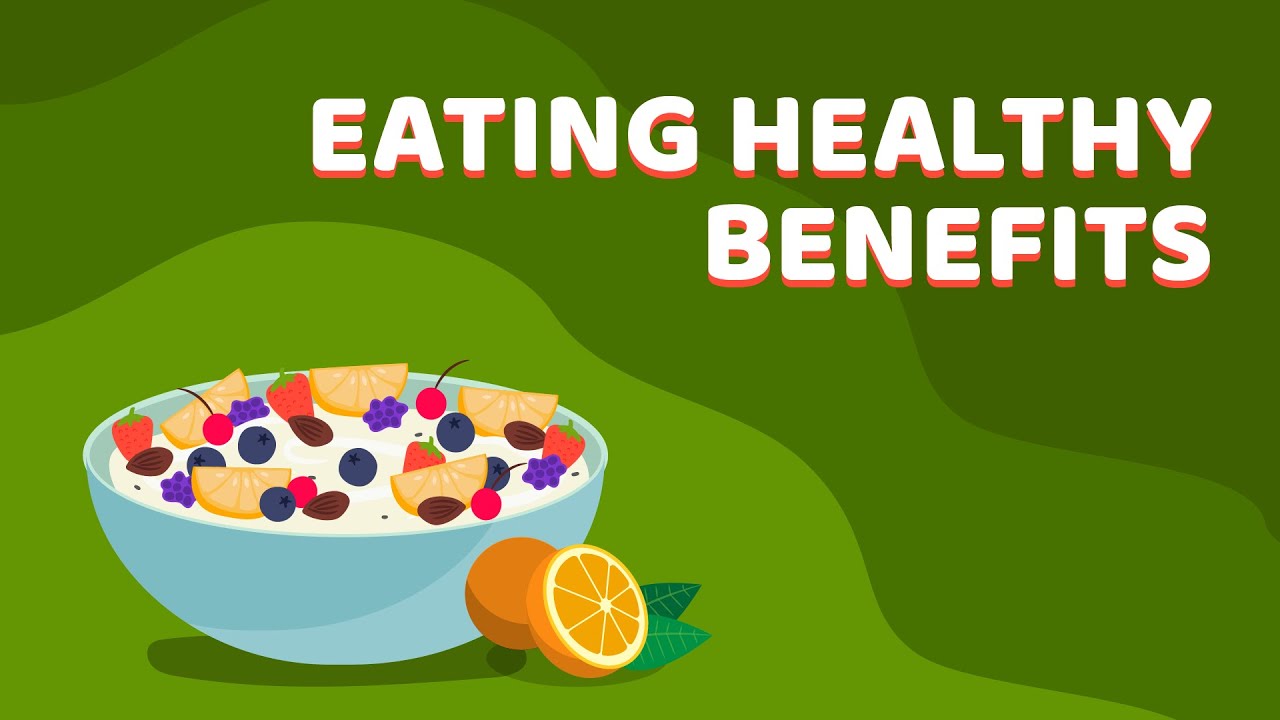Benefits of Healthy Food
In this article, we will explore the numerous benefits of consuming a healthy diet. A well-balanced and nutritious eating plan can have a profound impact on our overall well-being. By incorporating wholesome foods into our daily meals, we can experience a wide range of advantages that contribute to a healthier lifestyle.
Enhanced Physical Health
One of the primary benefits of consuming healthy food is the positive impact it has on our physical health. A diet rich in fruits, vegetables, whole grains, lean proteins, and low-fat dairy products provides our bodies with essential nutrients, vitamins, and minerals. These nutrients are vital for maintaining optimal bodily functions and promoting overall wellness.
By consuming a variety of healthy foods, we can strengthen our immune system, reduce the risk of chronic diseases such as heart disease and diabetes, and maintain a healthy weight. Additionally, incorporating healthy fats, such as those found in avocados and nuts, can contribute to better heart health and lower cholesterol levels.
Mental Well-being
Not only does a healthy diet benefit our physical health, but it also plays a significant role in our mental well-being. Research has shown a strong connection between what we eat and our mood, cognitive function, and overall mental health.
Consuming nutrient-dense foods, such as leafy greens, fatty fish, and berries, can provide the brain with the necessary nutrients to function optimally. These foods contain antioxidants and omega-3 fatty acids, which have been linked to improved brain health, memory, and concentration.
Increased Energy Levels
Choosing healthy food options can significantly impact our energy levels throughout the day. Unlike processed and sugary foods that provide temporary energy spikes followed by crashes, healthy foods provide a steady release of energy, keeping us energized and focused.
Complex carbohydrates found in whole grains, such as brown rice and quinoa, are excellent sources of sustained energy. Additionally, incorporating lean proteins, such as chicken, fish, and legumes, can help stabilize blood sugar levels and prevent energy fluctuations.
Weight Management
Another key benefit of consuming healthy food is its role in weight management. A diet that consists of nutrient-dense, low-calorie foods can help us achieve and maintain a healthy weight.
By focusing on whole foods that are rich in fiber, such as fruits, vegetables, and whole grains, we can feel fuller for longer periods, reducing the temptation to overeat. Additionally, incorporating regular physical activity alongside a healthy diet can further support weight management goals.
Improved Digestive Health
A healthy diet plays a crucial role in maintaining good digestive health. Consuming fiber-rich foods, such as whole grains, fruits, and vegetables, can promote regular bowel movements and prevent constipation.
Furthermore, probiotic-rich foods, such as yogurt and fermented vegetables, support the growth of beneficial gut bacteria, aiding digestion and enhancing nutrient absorption. A healthy gut is essential for overall well-being and can contribute to improved immune function and reduced inflammation.

In conclusion, adopting a healthy eating plan offers numerous benefits for both our physical and mental well-being. By consuming a variety of nutrient-dense foods, we can enhance our physical health, boost our energy levels, manage our weight, and support our digestive system. Prioritizing healthy food choices is a powerful step toward achieving a balanced and fulfilling lifestyle.
Frequently Asked Questions
1. What are the benefits of eating healthy food?
Eating healthy food provides numerous benefits such as improved energy levels, weight management, reduced risk of chronic diseases, enhanced mood, and better overall health.
2. How does healthy food contribute to weight management?
Healthy food is typically lower in calories and higher in nutrients, which helps in maintaining a healthy weight. It provides essential nutrients while keeping you fuller for longer, reducing the chances of overeating.
3. Can healthy food boost my immune system?
Yes, a balanced diet rich in fruits, vegetables, whole grains, lean proteins, and healthy fats can strengthen your immune system. These foods provide essential vitamins, minerals, and antioxidants that support immune function.
4. Does eating healthy food improve my mental well-being?
Absolutely! Nutrient-dense foods like fruits, vegetables, and whole grains provide essential vitamins and minerals that are crucial for brain health. Eating a healthy diet has been linked to improved mood, reduced risk of depression, and enhanced cognitive function.
5. Can healthy food reduce the risk of chronic diseases?
Yes, a diet rich in fruits, vegetables, whole grains, and lean proteins can lower the risk of chronic diseases like heart disease, diabetes, and certain types of cancer. These foods are packed with antioxidants, fiber, and other beneficial compounds that promote good health.
6. How does healthy food benefit my energy levels?
Healthy food provides a steady source of energy due to its balanced composition of carbohydrates, proteins, and fats. It helps prevent blood sugar spikes and crashes, ensuring sustained energy throughout the day.
7. Can eating healthy food improve my digestion?
A diet high in fiber from fruits, vegetables, and whole grains promotes healthy digestion. It prevents constipation, supports a healthy gut microbiome, and reduces the risk of digestive disorders like diverticulitis and hemorrhoids.
8. Does healthy food contribute to better skin health?
Yes, a nutritious diet can improve skin health. Foods rich in antioxidants, vitamins C and E, omega-3 fatty acids, and water can help maintain youthful skin, reduce acne, and promote a healthy complexion.
9. Can healthy food improve my sleep quality?
Yes, certain foods can positively impact sleep quality. Foods like almonds, walnuts, kiwi, and chamomile tea contain sleep-promoting compounds that can help regulate sleep patterns and improve overall sleep quality.
10. How does healthy food contribute to longevity?
A balanced diet consisting of healthy food choices can contribute to a longer and healthier life. It reduces the risk of chronic diseases, supports optimal organ function, and provides the necessary nutrients for overall well-being.




